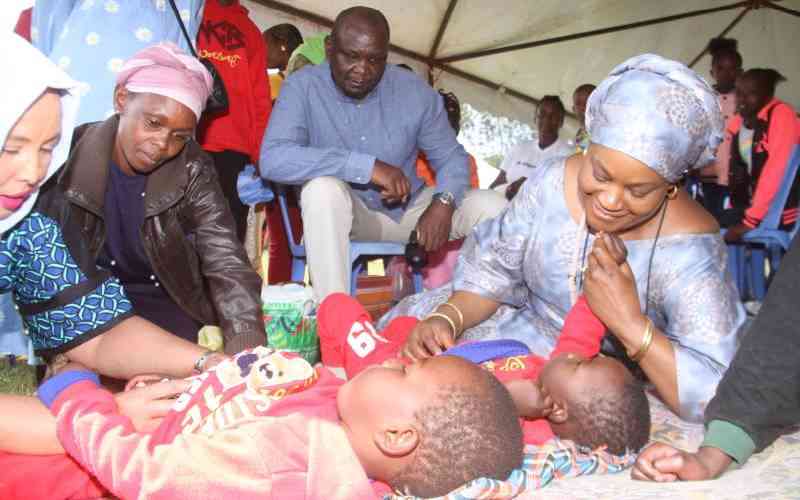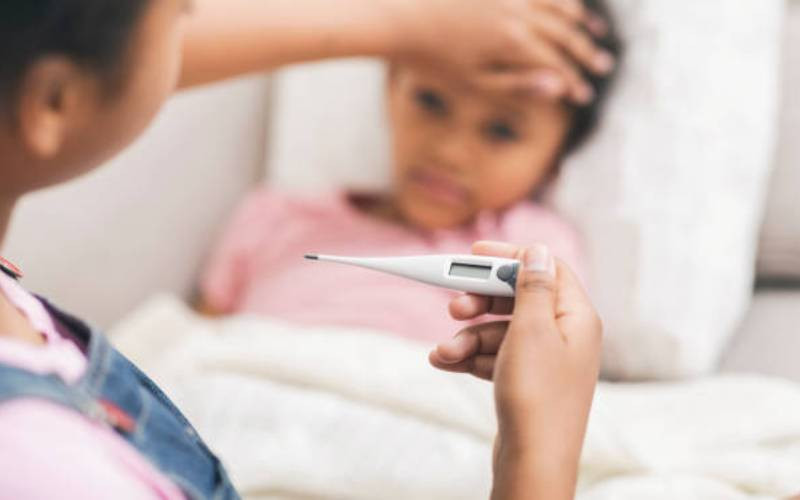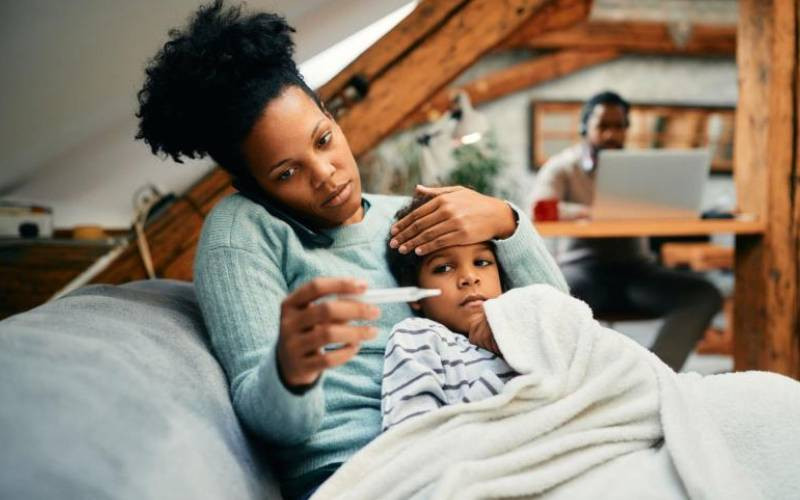As I sit preparing to write this article, I take a deep breath and think about how easy it is for me to do that. Breathe. It is the most natural thing in the world, something we all do thousands of times a day and take for granted. Yet for millions of children around the world, breathing is made extremely difficult due to one disease: pneumonia.
It may be shocking to many, but pneumonia is the leading cause of child deaths around the world. A staggering 920,000 children under five years lost their lives to pneumonia in 2015. Figures are always difficult to picture in real life, but this equates to a child dying every two minutes.
World Pneumonia Day is marked on November 12, and as the number one cause of child mortality around the world, our progress remains inadequate. Deaths from measles, Aids, malaria and diarrhoea - the other four main causes of child mortality - are being reduced at a faster rate. Progress has been slowest in sub-Saharan Africa, which is the cause of greatest concern.
Unifying advocacy
Pneumonia is a disease that cannot be tackled in isolation. As with so many diseases, our unifying advocacy call to ‘Stop Pneumonia’ is underpinned by complicated and challenging issues that often vary from country to country, and even from town to town.
Although the challenges vary considerably, one aspect has remained remarkably consistent: Pneumonia exists as a disease of poverty. Unfairness and inequity are at the heart of pneumonia deaths. A child from a wealthy background in Nigeria, for instance, is 15 times more likely to be vaccinated against pneumonia than a child from a poor household.
Closely linked to poverty’s impact on pneumonia is the risk of malnutrition. Pneumonia often unmasks vulnerability in children who are undernourished, compounding the chances that pneumonia will stunt or kill our youngest. Tragically, a severely malnourished child is nine times more likely to die from pneumonia than one who is well-fed.
Inequity in the availability of medical treatment also greatly affects our ability to treat children who have contracted pneumonia. The disease is most effectively treated by the antibiotic amoxicillin, but unfortunately this is not always widely available to those who need it most.
Fewer than 60 per cent of the medical facilities in Tanzania, Kenya and the Democratic Republic of Congo have a readily available source of amoxillin. In Uganda, the number of medical facilities with access to amoxicillin falls to less than a quarter.
Pollution, too, may play a role in the likelihood of children contracting pneumonia. Children breathe twice as fast as adults, meaning that they take in far more air relative to their body weight. This can put a strain on their lungs if they live in a polluted environment. In sub-Saharan Africa, over 80 per cent of households use biomass energy sources in their homes. These release soot that, when breathed in, may put children at risk of contracting pneumonia.
Daunting task
Taken altogether, it can become a daunting task to stop pneumonia. There are so many issues to address if we are to truly stop pneumonia deaths, and the scale of challenge is a little scary. While it is extremely difficult to simultaneously drive progress in all the areas impacting pneumonia, one tool in our inventory is particularly powerful: vaccines.
Just take a look at the success stories on the African continent. Ghana introduced the Pneumococcal Conjugate Vaccine (PCV), the most effective immunisation we have against pneumonia, in 2011. In one year, the Ghanaian government reached nearly half of its citizens. Now Ghana has reached near universal immunisation coverage against the disease.
The Ethiopian government also introduced PCV in 2011, and now more than three-quarters of the people are fully immunised against the disease.
It is an old adage, but it’s certainly true for pneumonia: prevention is better than cure. Inequity in treatment availability, the risk of antimicrobial resistance, the strain on national health services and ultimately the danger of losing more children are all greatly reduced when they are immunised against pneumonia.
Stay informed. Subscribe to our newsletter
I recently had the privilege of being named a ‘Pneumonia Fighter’. In truth, it is something I have considered myself for a significant period of my life, and is something I am tremendously proud to do. But today, join me in calling on African leaders to uphold the commitments they made in the Addis Declaration on Immunisation - to invest in PCV coverage, to reduce the number of children dying from pneumonia, and to consider themselves ‘Pneumonia Fighters’ too.
We will all breathe a little easier knowing that the global pneumonia burden is improving, not least concerning the children at risk.
Dr Klugman, Director for Pneumonia at the Bill and Melinda Gates Foundation
 The Standard Group Plc is a
multi-media organization with investments in media platforms spanning newspaper
print operations, television, radio broadcasting, digital and online services. The
Standard Group is recognized as a leading multi-media house in Kenya with a key
influence in matters of national and international interest.
The Standard Group Plc is a
multi-media organization with investments in media platforms spanning newspaper
print operations, television, radio broadcasting, digital and online services. The
Standard Group is recognized as a leading multi-media house in Kenya with a key
influence in matters of national and international interest.
 The Standard Group Plc is a
multi-media organization with investments in media platforms spanning newspaper
print operations, television, radio broadcasting, digital and online services. The
Standard Group is recognized as a leading multi-media house in Kenya with a key
influence in matters of national and international interest.
The Standard Group Plc is a
multi-media organization with investments in media platforms spanning newspaper
print operations, television, radio broadcasting, digital and online services. The
Standard Group is recognized as a leading multi-media house in Kenya with a key
influence in matters of national and international interest.







